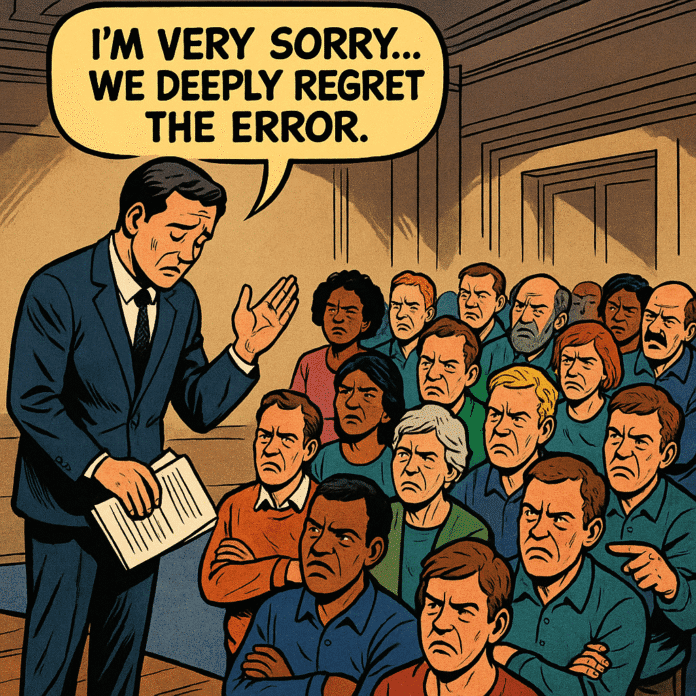A Conversion Mistake Shakes Trust in Norsk Tipping and Leaves Players Reeling
Imagine waking up to a message saying you’ve won millions—only to have your dreams shattered by a single coding error. Nearly 47,000 Norwegians experienced this bitter surprise when Norsk Tipping, the state-owned lottery operator, mistakenly notified them of extravagant Eurojackpot wins resulting from a conversion glitch. This isn’t just a story of a technical mishap; it is a compelling narrative of accountability, public trust, and the transformative impact of digital errors on everyday lives. Our in-depth exploration reveals what went wrong, how it unfolded, and what steps are being taken to restore confidence in a system that many rely on for a slice of hope.
What Went Wrong? The Anatomy of a Lottery Error
The Incident Unfolds
On June 27, 2025, hopeful players across Norway received texts and app notifications congratulating them on their massive lottery winnings. However, the good news was based on inflated numbers. Instead of small, realistic sums, some winners saw amounts that were up to 10,000 times higher than they should have been—for instance, a modest 125 kroner win erroneously shown as 1.2 million kroner.
The Technical Breakdown
The error stemmed from a manual coding mistake during the conversion of Eurojackpot prize amounts from euro cents to Norwegian kroner. Typically, the conversion should involve dividing the euro cent amount by 100 before applying the relevant exchange rate. In this instance, a misstep in the code resulted in multiplying the value by 100, thereby magnifying the winnings drastically. Acting CEO Vegar Strand later stated, “We have greatly disappointed our customers and take full responsibility for cleaning up,” underscoring the serious impact of the error.
The Human Cost—Dreams Built and Broken
Emotional Whiplash for Players
For many players, the notification felt like a sudden stroke of fortune. Plans for vacations, new homes, or much-needed renovations sprang to life immediately upon receiving the news. One affected individual admitted, “I was already looking at apartments. It felt like my life had changed overnight.” The emotional rollercoaster—from euphoria to crushing disappointment once the error was revealed—has left a lasting impact on those who trusted the system.
Erosion of Public Trust
This is not the first time Norsk Tipping has endured technical setbacks. Previous incidents involving delays in winner confirmations and failures in responsible gambling tools have left a trail of skepticism among the public. The lottery error further deepens the distrust, with many questioning the reliability of a system that handles not just money but also the hopes and dreams of thousands. When trust is compromised, both the organization and its patrons suffer long-term consequences.
Official Response and Accountability
Leadership Changes and Public Apologies
In the wake of the error, Norsk Tipping’s top leadership took swift action. Tonje Sagstuen, the company’s CEO, resigned amid mounting criticism. In her farewell remarks, she expressed deep regret, stating, “I am terribly sorry that we have disappointed so many, and I understand that people are angry with us.” The resignation sends a clear message of accountability and underscores the gravity of the incident.
Government and Regulatory Actions
Norway’s Ministry of Culture, which supervises Norsk Tipping, convened an emergency meeting with the company’s board, demanding a full investigation into the error. The Norwegian Gambling Authority has also signaled intentions to impose penalties and enforce stricter guidelines to prevent future mishaps. Culture Minister Lubna Jaffery labeled the error “totally unacceptable,” emphasizing that robust oversight is essential for maintaining public trust in state-run enterprises.
Lessons from Norway—and Beyond
Not the First, and Likely Not the Last
Norway’s error mirrors incidents on a global scale where similar technical or procedural failures have upended public confidence. Examples range from retailer fraud in Canada to rigged draws in Italy and insider manipulation in the Dominican Republic. These cases collectively highlight the need for vigilance, stringent quality controls, and top-tier system integrity in managing public financial operations.
Best Practices and Preventative Measures
Key recommendations to mitigate such issues in the future include:
- Regular Audits and Third-Party Verification: Ensuring that independent experts review and verify system integrity can detect vulnerabilities early.
- Robust Software Testing: Introducing automated testing and real-time error detection protocols will reduce the chance of human error.
- Transparency and Crisis Management: Clear communication during a crisis alongside visible corrective measures helps maintain public trust.
- Staff Training and Ethical Oversight: Continuous training and ethical guidelines for employees are essential for maintaining the integrity of public-facing financial systems.
These measures collectively serve as a blueprint for rebuilding confidence and ensuring accountability in all aspects of digital financial systems.
Moving Forward—Restoring Trust and Preventing Future Errors
Norsk Tipping’s Plans for Reform
In response to the error, Norsk Tipping has vowed to overhaul its internal processes. The company is implementing enhanced staff training, automated review systems, and more rigorous validation checks. Additionally, goodwill gestures—such as free lottery tickets—are being considered to mitigate the emotional and financial fallout experienced by the many affected players. These steps are vital in repairing the battered relationship between the operator and its customer base.
A Call for Vigilance and Informed Participation
For many, this incident serves as a stark reminder of the importance of transparency in public institutions. It is crucial for citizens to stay informed and actively demand better performance and accountability from organizations handling public finances. This is not merely about a lottery error; it is about ensuring that technology and oversight work hand in hand to safeguard our trust and well-being.
The Norsk Tipping lottery error presents a cautionary tale for our digital era. A single coding oversight turned hope into heartbreak for thousands, peeling back layers of public trust that took years to build. As investigations proceed and reforms take shape, this incident stands as a powerful call to action: public institutions must prioritize accuracy, transparency, and accountability to protect the dreams of those they serve. Stay informed, demand accountability, and join the conversation on how we can build more reliable, trustworthy systems for the future.




